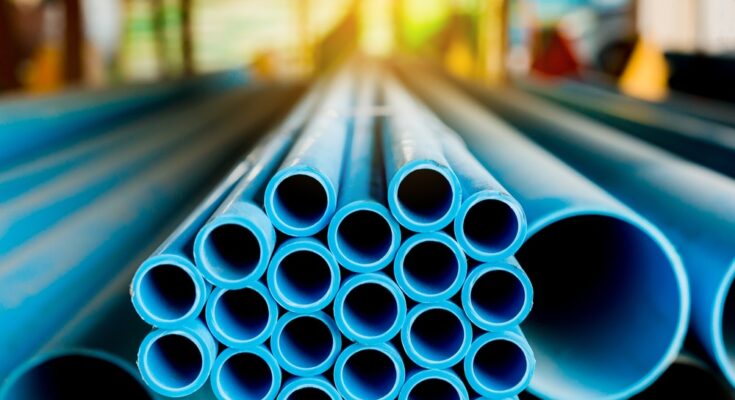All industrial facilities use piping in some form or another. When it comes to the material for this piping, plastic and metal are the two main options. Though both have their virtues, we’re here to explore the particularly compelling benefits of plastic pipes in industrial facilities. Though these pipes can be made from different kinds of plastics, the following advantages apply to all of them. Whether you’re outfitting your industrial plant with pipes or simply curious, the following information can be helpful.
Plastic Piping Doesn’t Corrode
Corrosion is a leading cause of pipe failure in industrial settings because of constant exposure to moisture, chemicals, and acidic substances. Metal pipes are notorious for falling victim to rust and corrosion over time. Plastic piping, on the other hand, is inherently resistant to this issue. PVC, CPVC, HDPE, and other plastics are immune to rust and stand up to exposure to corrosive substances.
Plastic Piping Is Lighter Than Metal
Weight might not seem like a big deal in the grand scheme of things, but it’s important for a few reasons. For one, lighter pipes are easier to lift and move, which makes a world of difference during installation. Additionally, lighter pipes are cheaper to ship, improving your facility’s bottom line. Finally, whether they’re installed from the ceiling or floor, pipes can sag and strain their supporting fixtures. Lighter pipes put less strain on the network they’re a part of.
Therefore, since plastic pipes are significantly lighter than metal ones, they are the smart choice for cost-effectiveness and long-term system functionality.
Plastic Pipes Are Flexible
Pipes should be durable, but it’s equally important to have flexible pipe systems in industrial facilities. This is because they need to bend around corners, adapt to tight spaces, handle shifting ground conditions, and support heavy liquids.
Flexibility reduces the risk of the pipes cracking or breaking under pressure or movement, making plastic pipes ideal. Their ability to accommodate such scenarios helps maintain flow rates and prevents damage that could lead to costly downtime.
Plastic Pipes Last a Long Time
Durability is crucial in high-performing industrial environments, and plastic pipes are built to last. Because of their flexibility and resistance to corrosion, plastic pipes generally last longer than metal ones do. Plus, they’re resistant to scaling and impact damage.
The extended longevity of plastic pipes boosts their value and solidifies them as a reliable option for any industrial piping system.
Plastic Pipes Are Generally Cheaper Than Metal Ones
Cost is always a consideration when choosing materials for industrial projects, and plastic pipes shine here. From production and shipping to installation and maintenance, plastic pipes tend to be much more affordable than metal pipes at every stage. Their corrosion resistance and low weight further reduce costs by eliminating the need for expensive coatings, treatments, and heavy lifting equipment.
Consider the benefits of plastic pipes in industrial facilities if you’re trying to decide between a plastic or metal piping system. Choosing plastic, in whatever type is best for your operations, will probably lead to cost-savings, lower maintenance, and a long-lasting setup.



